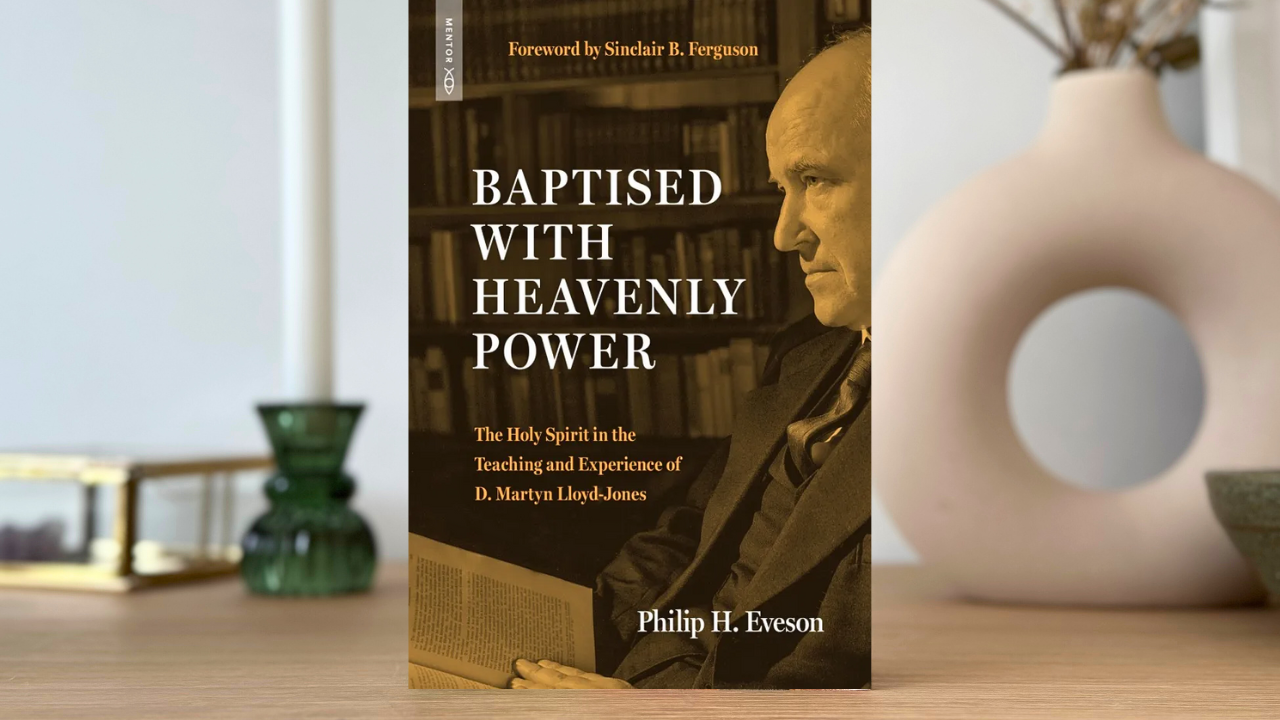Baptised with Heavenly Power
In Baptised With Heavenly Power, Philip H. Eveson explores of the life, theology, and spiritual convictions of D. Martyn Lloyd-Jones. This biography stands out not only for its attention to Lloyd-Jones’s theological development and associations, but also for its rich analysis of his preaching philosophy—particularly his insistence on both doctrinal precision and Spirit-empowered proclamation.
This 400-page book begins by examining Lloyd-Jones’s Calvinism through the lens of his preaching and teaching, then transitions to his unique self-identification as a “Calvinistic Methodist.” Rather than viewing these terms as contradictory, Lloyd-Jones saw them come together in what he called “true Methodism.” He was thoroughly Reformed in both theology and practice, while still shaped by the spiritual fervor of Methodism.
Spiritual Formation and Revival
One of the more surprising and inspiring aspects of the book is the insight into Lloyd-Jones’s formation. Though he lacked formal theological training, he was largely self-taught and was greatly influenced by books, especially the works of Jonathan Edwards and B. B. Warfield. His admiration for the Puritans influenced his deep commitment to theological teaching. He saw his times judge and value people more by academic achievement than by Christian character. He believed that education does not lead to edification, as he remained unwaveringly doctrinal and rooted in biblical truth.
The book devotes a significant section to Lloyd-Jones’s views on the baptism of the Holy Spirit. For Lloyd-Jones, this baptism was closely associated with a Christian’s full assurance of salvation. Pentecost was a baptism of power and fire upon an already established Church.
I was particularly compelled by Lloyd-Jones’s distinction between evangelistic meetings and revival. He believed revival was a miracle that could not be orchestrated or scheduled. In revival, people came in large numbers without being prompted, and many of them remained faithful. God often begins revival in the most unexpected places using the most unlikely people. The ultimate purpose of revival was to glorify God, demonstrate his power, and humble his people. As Iain Murray noted, revival wasn’t a separate category in Lloyd-Jones’s theology but was to be seen as an aspect of ministry.
Spirit-Dependent Preaching
I was most moved to see my own convictions about preaching reflected in Lloyd-Jones’s approach. He emphasized preparation, urgency, and seriousness, all carried out in the spirit of worship. Though he lacked formal pastoral education, he learned through through diligent personal study and by the mentorship of seasoned ministers.
I was interested to read how his medical training influenced his preaching. His sermons were marked by logical structure, careful reasoning, and frequent use of probing questions. As a Registered Nurse, this made me reflect on how my own professional background shapes my preaching.
Lloyd-Jones preached with a deep dependence on the Holy Spirit, believing that it was the Spirit who empowered his words and made them effective. His relationship with the Spirit was both biblical and deeply pastoral. Baptised with Heavenly Power is academically engaging and spiritually enriching, inviting readers to approach theology with seriousness, humility, and prayerful dependence on the Spirit.
I received a media copy of Baptised with Heavenly Power and this is my honest review. Find more of my book reviews and follow Dive In, Dig Deep on Instagram - my account dedicated to Bibles and books to see the beauty of the Bible and the role of reading in the Christian life. To read all of my book reviews and to receive all of the free eBooks I find on the web, subscribe to my free newsletter.
